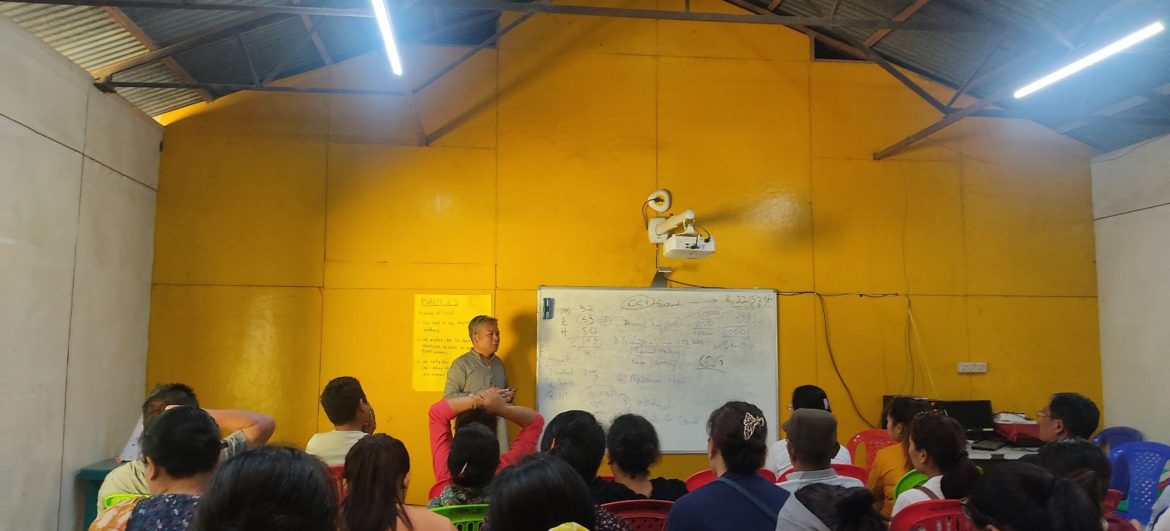Quis autem velum iure reprehe nderit. Lorem ipsum dolor sit nulla or narjusto laoreet onse ctetur adipisci.

Centre for Community Initiative (CCI)

Centre for Community Initiative (CCI) is a non-governmental, non-political, and non-profit organization founded on March 7, 2002, with a vision to create a healthy and just society with equal opportunities for all.
When the Secretary of CCI and his family personally experienced the lack of inclusion, and the absence of awareness, interventions, and facilities in the district through his son who was born with optic nerve atrophy, CCI made a major shift. With the firm belief that each individual, community, institution, and government contribute in their way to make a better world, CCI’s mission to build and strengthen society on health care, education, and socio-economic development through community initiative and participation found the right place to start. Thus CCI began focussing on disability and inclusion in its programme in 2007.
CCI has been working towards its vision through several initiatives that fall under education, advocacy, empowerment, and sustainable development in three districts of Manipur. These involve the Malsawm Ability Resource Centre (MARC), which includes the Malsawm Initiative (a school for children with special needs), early intervention, therapy services, Making Education Accessible for All (MEAL), Home School Programme, and Inclusive School Programme; Community Empowerment & Advocacy; Sustainable Development; Disability Inclusive Disaster Risk Reduction.
Location
CCI is based in a remote Churachandpur district of Manipur, a hilly and inaccessible region that borders Mizoram to the south and Myanmar to the southeast and east, where the over 2.7 lakhs population who are mostly tribal practice subsistence agriculture as a main occupation. The district is plagued with problems and challenges typical of any underdeveloped region where unemployment is rampant, and more because of insurgency and highly polarised society on communal lines. Therefore, CCI is born out of need through the joint initiative of like-minded individuals.
Making Education Accessible for All (MEAL) is necessitated because of the lack of resources for children with disabilities and the gap between whatever resources are available. Availability of resources does not necessarily mean they are accessible for many children with disabilities unless an accessibility feature is added for them. MEAL is to add that feature and bridge the gap between them through two key components i.e., Home School Programme and Inclusive School Programme through which CwDs are provided the opportunity of education at home and in schools.
Headed by a Coordinator, MEAL is based and implemented in Churachandpur town in the Churachandpur district of Manipur. The district has a predominantly tribal population of over 2.74 lakhs (2011 Census), of which 3.3% are estimated to be with various types of disabilities.
Home School Programme (HSP): Through HSP, fifty children with various types of disabilities between ages 0-18 who are confined at home are provided appropriate education including physiotherapy and counselling services. They are confined at home due to the nature of their disability, and/or from a financially weak family, and/or single-parent home, and/or in need of remedial education. The beneficiaries are identified through contacts among the disability community and through door-to-door visits. Once they are identified, a case history is built, a functional assessment is conducted, and an Individualized Education Plan (IEP) and Teaching Learning Materials are developed for each beneficiary based on which service is being provided. Services are provided three times a week or less, depending on specific cases, by four home teachers guided by special educators and a part-time physiotherapist. Counselling and training of family members of beneficiaries is also provided so that they can care for their child/sibling better and sustain the service. The beneficiaries are confined at home most of the time with very little or no socialization beyond family, an annual exposure event is also organized.
Inclusive School Programme (ISP): Children with disabilities who are ready for school through the HSP and other interventions have very limited opportunity to join schools in the Churachandpur district except TMI. TMI on the other hand has its challenges to accommodate them. So, for children with disabilities to have more opportunities for education, elementary sections of 6 mainstream co-ed schools; two govt. & four private schools are being capacitated on Inclusive Education by two Inclusive Educators. Two teachers from each school are provided training on Inclusive Education and taken on an exposure visit to a well-managed inclusive school. Handholding support is provided to them in their classrooms in curriculum adaptation, lesson planning, classroom management, development of TLMs, etc. Observations are shared; recommendations are made and are monitored in their implementation.
Plans for the next 1-3 years
Operational:
As a part of the Making Education Accessible for All program, continue to provide services including education, physiotherapy, counselling and training, and fill the gap from the target 50 beneficiaries whenever the gap arises.
Educational:
- Refresher training on policies of the organization.
- In-house training and knowledge-sharing sessions once every month.
- Training in Indian Sign Language and Braille.
- Special Educators to attain minimum CRE points.
Organizational:
- Update on relevant rules and laws, e.g., IT, FCRA, and others.
- Update policies as needed.
- Expand network with like-minded organizations and supporters for expansion of projects.
